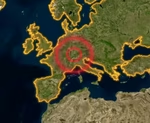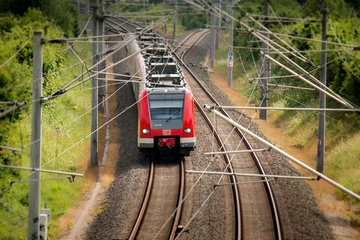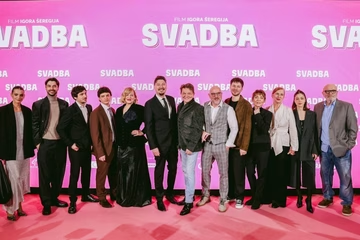
Nationals of Bosnia and Herzegovina are currently the most numerous foreign workers in Croatia, followed by labour migrants from Nepal, who are now more numerous than workers from Serbia. Most complaints from migrant workers to the Ombudswoman concern non-payment of wages or wage cuts.
This was stated at a conference called Croatian Safety Days, which took place in Opatija on 16-18 October.
Foreign workers mostly complain to the Ombudswoman because they have not received their wages or have received wages that are lower than what they had originally agreed with their employer, because they are receiving envelope wages or because they have been forced to work overtime without having the right to daily or weekly rest periods, Deputy Ombudswoman Dijana Kesonja said at a forum on urban safety that brought together a large number of experts.
Lack of support
Foreign workers also complain about a lack of support when they are injured at work, about having to do work that is not provided for in their labour contract, and about employers threatening them with dismissal and confiscation of their passports if they insist on their rights, Kesonja said, describing individual complaints.
“Our society must be prepared for foreign workers because they are different, which leads to verbal and physical attacks on them,” Kesonja said.
The pleasant weather and football are what attract foreign workers to Croatia, but the most attractive element is the fact that it is an EU country, sociologist Marica Marinovic-Golubic said as she presented a survey of about 30 workers from Nepal, India, Pakistan and the Philippines.
The survey, which was conducted as part of the project “Modern labour migration – new residents of Zagreb”, shows that both men and women from the Philippines come to Croatia to work. Many of the women are married and have children. They communicate with them by phone and send them money for their education.
Croatia is attractive because it is in the EU
There are more men and women in the labour force from Nepal. The Nepalese women are young and unmarried, while the men are mostly married. The labour migrants from Pakistan, Bangladesh and India are all men. What they all have in common is the fear that their work permit will not be renewed, said Marinovic-Golubic.
The sociologist said that the immigrants are most attracted by the fact that Croatia is an EU country and that Europe means a better life for them. Citizenship of an EU country is the most desirable citizenship for them, even more so than citizenship of the USA.
“Whole families join together to send them to the EU, and this endeavour costs €6,000 to €7,000. They borrow money for this, with an annual interest rate of up to 36%. The immigrants therefore send most of their salary to their families, who then repay the debt,” says the sociologist.
The conclusion of the survey is that Croatia is developing into a multi-ethnic society with immigrants because the country is the rich West for immigrants. The problem, however, is that the recruitment of foreign labour was left entirely to private companies and intermediaries.
Agencies promise high salaries
Foreign workers are recruited through agencies that cause problems because they promise them huge salaries, and then when they come, they do not know what to do, said Goran Burisic from a Zagreb-based agency that employs about 120 people who work as deliverers for Wolt.
In India, for example, they cannot apply for a visa at the Croatian embassy, but have to go through an agent who charges a fee to apply for a visa on their behalf. Some workers come to Croatia with the plan to flee to other Western countries, which they are often instigated to do by their agents who brought them to Croatia, Burisic said.
Burisic, a criminologist by training, warns that Wolt delivery workers were frequently targeted by assailants in 2023 and 2024: “They were assaulted and their deliveries stolen, in Novi Zagreb children aged 14-16 threw fruit, stones and other objects at them and knocked them off their scooters,” he said.
Hrvoje Butkovic from the Institute for Development and International Relations said that state institutions were very slow in organising Croatian language courses for migrant workers and the number of courses was insufficient.
The sectors in which most work permits for foreign workers have been issued are construction, tourism and catering. However, the aim is to encourage the arrival of highly skilled labour, which Croatia lacks due to emigration. Highly qualified emigrants are now being replaced by low-skilled immigrants, Butkovic said.
Kakvo je tvoje mišljenje o ovome?
Učestvuj u diskusiji ili pročitaj komentare





 Srbija
Srbija
 Hrvatska
Hrvatska
 Slovenija
Slovenija



























































